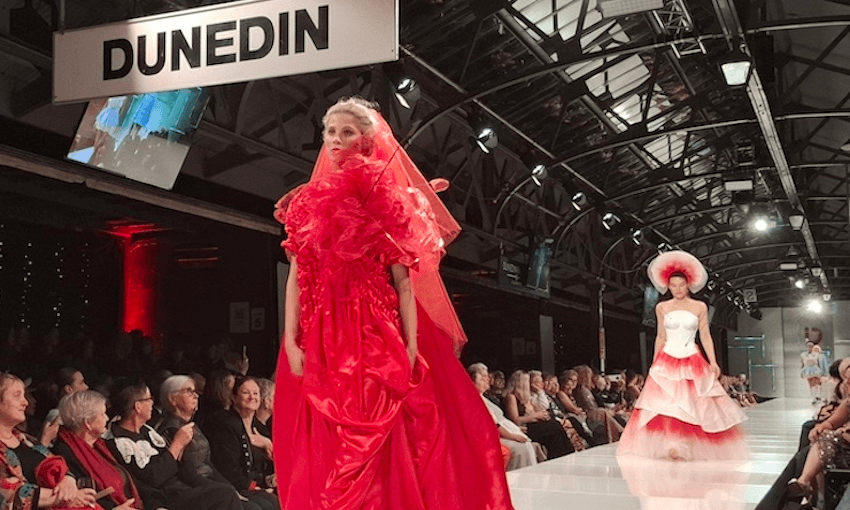Russia unlikely to capture significantly more territory this year, says US
Russia is unlikely to capture significantly more territory this year, according to the US director of national intelligence, Avril Haines.
She told a Senate hearing that the military will probably be unable to carry on its current level of fighting, even with the possible capture of Bakhmut, with fierce fighting continuing to take place in the city in eastern Ukraine.
After major setbacks and large battlefield losses, “We do not foresee the Russian military recovering enough this year to make major territorial gains,” she told a Senate hearing.
Nevertheless, Russian president, Vladimir Putin, “most likely calculates that time works in his favour,” Haines said, according to Agence France Presse.
Putin likely believes that prolonging the war, with intermittent pauses in fighting, “may be his best remaining pathway to eventually securing Russian strategic interests in Ukraine, even if it takes years,” she said.
Haines, reporting on the sum of views in the broad US intelligence community, said that one year after invading Ukraine but failing in his primary goals for the operation, Putin probably now has a better understanding of the limitations of his forces.
Moscow’s military power is now significantly constrained by troop losses and arms depletion that is exacerbated by trade restrictions and sanctions placed by the United States and allies, she noted.
Putin “appears to be focused on more modest military objectives now,” she told the Senate Intelligence Committee.
“If Russia does not initiate a mandatory mobilisation, and identify substantial third-party ammunition supplies, it will be increasingly challenging for them to sustain even the current level of offensive operations,” Haines said.
As a result, Russian forces “may fully shift” to holding and defending the territories they now occupy, she said.
Key events
The chief of Russian mercenary group Wagner, Yevgeny Prigozhin, has said he will not appeal against EU sanctions against him, and that they are justified.
“As for contesting sanctions against me and sanctions against PMC Wagner, I am not going to contest them and I believe that at the moment they are imposed quite reasonably,” he said in a statement, reported by Agence France-Presse.
Prigozhin is an ally of Russian president Vladimir Putin, and his recruits have been fighting for months to capture the battle-scarred city of Bakhmut in eastern Ukraine.
He made the statement after a European court earlier Wednesday cancelled EU sanctions imposed on his mother, Violetta Prigozhina (see 11:36am), ruling that Brussels had not proved she was linked to her son’s actions in Ukraine.
In a statement, the EU general court said even if Prigozhin was responsible for illegal acts in Ukraine, the evidence presented against his mother when the sanctions were applied last year was insufficient.
Four former bankers with a now-closed Swiss affiliate of a major Russian bank have gone on trial over allegations that they didn’t properly check accounts opened in the name of a Russian cellist who has ties to President Vladimir Putin.
The one-day trial in Zurich district court on Wednesday stems from information about secretive financial flows revealed in the Panama Papers leaks in 2016, that implicated musician and Putin’s childhood friend Sergei Roldugin. It took years for prosecutors to unravel the web of money and bring the case to court, Associated Press reports.
The trial opens a rare window into allegations from the Panama Papers that a member of Putin’s circle of friends helped funnel millions abroad and that financial employees may have turned a blind eye to such inflows. Putin has denied the accusations.
Both before and since Putin ordered forces into Ukraine, western nations have imposed sanctions against oligarchs and others with close ties to his government, including Roldugin. The US Treasury describes Roldugin as “part of a system that manages President Putin’s offshore wealth.”
The former Gazprombank employees – three Russian-born and one Swiss-born who cannot be named under Swiss law – are charged with failing to adequately check whether Roldugin, who was a client of the bank from 2014 to 2016, actually owned the assets in the accounts.
Documents filed when the accounts were opened listed expected transactions of 11.5m Swiss Francs ($12.2m). The indictment doesn’t indicate how much of that may have arrived at the bank.
It is “publicly known that Russian President Putin officially has an income of just over 100,000 Swiss francs and is not wealthy, but in fact has enormous assets managed by people close to him,” according to the indictment.
The document says Gazprombank maintained the accounts despite “abundant” media reports about Roldugin’s relationship to Putin, including that he was godfather to one of Putin’s daughters.
Backbench MPs in the UK have said that sending old fighter jets to Nato allies could encourage them to give planes to Ukraine.
Members of the House of Commons defence select committee said that RAF Typhoon jets could be used to “backfill” for other countries whose jets could be flown more easily by Ukrainian pilots.
Conservative party MP, Robert Courts, said a batch of British Typhoons being retired from their air defence role could be used to replace other countries’ planes, the Mirror reported.
“Would it not be possible to supply those [Typhoons], if not directly to Ukraine, to one of those of partner nations which could release Mig19, Sukhoi24 or one of the other platforms available around the world?” he said.
Conservative former defence minister, Mark Francois, said a squadron of Typhoons was mothballed at RAF Shawbury “gathering dust”.
“If we were to give at least half of those, a half squadron of six, announce we are going to give them to Ukraine, that might help to unlock the Migs and F16s they really want,” he claimed.
“Rather than having them gathering dust in a hangar, even if it took a while to deliver them, why couldn’t we make a political signal, offer them six of those Typhoons that are sitting in a hangar doing nothing?”
European Union foreign policy chief, Josep Borrell, said on Wednesday he had suggested the bloc spend €1bn for the joint procurement of ammunition for Ukraine and to refill their own stockpiles.
“I propose to mobilise another €1bn,” Reuters reported he told the media after a meeting of EU defence ministers in Stockholm.
Borrell also spoke about the inquiries into the Nord Stream gas pipeline explosions, saying that while the investigations were ongoing, it was not possible to draw a conclusion.

These images from the frontline near Bakhmut give a glimpse of the conditions that Ukrainian military forces are having to contend with.




Volodymyr Zelenskiy has used his social media channels to thank the UN secretary-general, António Guterres. Alongside a video clip of them meeting in Kyiv today, the Ukrainian president wrote:
Right now, Ukraine is at the forefront of not just a struggle, but a real war for all the principles on which international life is based. Right now, it is Ukraine that is defending the goals and principles of the UN Charter. Hence, it is now and in Ukraine that the future of the UN and the global role of the United Nations are being decided.
I personally thank the secretary-general, his team and the United Nations as a whole, who share our view of the need to protect universal values and the international order.
‘Critical’ Black Sea grain deal be extended, says UN general secretary

The UN general secretary, António Guterres, and the Ukrainian president, Volodymyr Zelenskiy, have met in Kyiv.
They have jointly called for an extension of the deal with Moscow that has allowed Kyiv to export grain via the Black Sea during Russia’s invasion, without any threat being posed to the ships. Guterres said it was “critical” for the deal to be continued.
Zelenskiy said after talks with Guterres that the Black Sea grain initiative was necessary for the world. Guterres underlined the importance of the deal to global food security and food prices.
The 120-day deal, initially brokered by the UN and Turkey in July and extended in November, will be renewed on 18 March if no party objects.
Russia has signalled that obstacles to its own agricultural exports needed to be removed before it would let the deal continue.
Ukraine’s first lady visited the United Arab Emirates (UAE) on Wednesday to mark International Women’s Day.
Olena Zelenska described her role and that of other first ladies and gentlemen in the world as a real power, while speaking before a packed ballroom. She also applauded the work of Ukrainians amid the ongoing war.
“We are a force and we can continue to change the world,” Zelenska said at the Forbes 30/50 Summit in Dubai via a translator, AP reports.
Zelenska’s trip to the United Arab Emirates’ capital comes as the UAE remains one of the few direct routes out of Moscow – for people fleeing conscription and for the wealthy who want to park their money in a nation with access to western financial markets.
The US Treasury has expressed concerns over the amount of Russian money currently in Dubai’s property market. Meanwhile, the superyachts of Russian oligarchs also have repeatedly turned up in the Emirates since the start of Moscow’s war on Ukraine last year.
However, the UAE has voted against Russia’s invasion at the United Nations and has donated humanitarian aid to Ukraine since the war began. The Ukrainian president, Volodymyr Zelenskiy, has held multiple calls with the UAE leader Sheikh Mohammed bin Zayed Al Nahyan.
Zelenska arrived in the UAE on Tuesday and met with Mohammed at Qasr al-Bahar in Abu Dhabi, the country’s capital. There, Mohammed pledged $4m to Zelenska’s foundation that will go towards the construction of orphanages, the Emirates’ state-run WAM news agency reported.
“Sheikh Mohammed reiterated the UAE’s commitment to the people of Ukraine through ongoing humanitarian aid, while stressing the importance of international and regional efforts aimed at reaching a political solution to re-establish security, stability and peace,” WAM said.
Bakhmut could fall within days says Nato secretary general
More on Jens Stoltenberg’s comments to the press earlier about the potential fall of Bakhmut, the city in eastern Ukraine that has the scene of fiercely fighting in recent months.
The Nato secretary general said it may fall into Russian hands in the coming days. “What we see is that Russia is throwing more troops, more forces and what Russia lacks in quality they try to make up in quantity.
“They have suffered big losses, but at the same time, we cannot rule out that Bakhmut may eventually fall in the coming days.”
He was speaking outside a meeting of EU defence ministers in the Swedish capital, Stockholm.
The head of the western military alliance, which backs Ukraine, insisted “it is also important to highlight that this does not necessarily reflect any turning point of the war.
“It just highlights that we should not underestimate Russia. We must continue to provide support to Ukraine,” he said.
The current status of Bakhmut is hotly disputed. Russia’s Wagner mercenary group claimed on Wednesday that it had captured the eastern part of the city.
The announcement came after the Ukrainian president, Volodymyr Zelenskiy, said the fall of Bakhmut would give Moscow an “open road” for offences deeper into Ukraine.
The intense fighting around Bakhmut has been the longest and bloodiest in Russia’s more than year-long invasion, which has devastated swathes of Ukraine and displaced millions of people.
Still unclear who carried out Nord Stream sabotage – Nato chief
The head of Nato has said that it was still uncertain who carried out the attack on the Nord Stream gas pipelines in September last year, and that national investigations needed to be allowed to finish.
The secretary general, Jens Stoltenberg, told journalists outside an EU defence ministers’ meeting in Stockholm: “What we do know is that there was an attack against the Nord Stream pipelines, but we have not been able to determine who was behind it.
“There are ongoing national investigations and I think it’s right to wait until those are finalised before we say anything more about who was behind it.”
He added that given the continuing fighting in Bakhmut, there was a chance it could fall in the next few days.
“We must ensure that this does not turn out to be turning point in the war.
“It just highlights that we should not underestimate Russia, we must continue to provide support to Ukraine and Nato allies have over the last year supported Ukraine with military and financial and economic support worth close to €150bn.”
EU court halts sanctions against Wagner leader’s mother

Jennifer Rankin
An EU court has struck down the sanctions against the mother of the Russian mercenary leader Yevgeny Prigozhin, arguing the family connection was not enough to target her.
Violetta Prigozhina had appealed to the Luxembourg general court after she was added to the EU sanctions list in February 2022, on the eve of the Russian invasion of Ukraine.
She won her appeal on Wednesday after judges concluded that the EU council of ministers, the decision-making body, had failed to demonstrate that she owned any companies with links to her son.
Yevgeny Prigozhin, the founder of Russia’s Wagner mercenary group and one of Vladimir Putin’s closest associates, was added to the EU sanctions list in 2020 over his role in financing Russian fighters in Libya who committed human rights abuses.
The EU council added his mother, Violetta, to the sanctions list, naming her as the owner of the Concord Management and Consulting Group, part of the Concord Group, founded and owned by her son until 2019.
She was said to own other companies related to her son, who had benefited from Russian defence ministry contracts following Russia’s invasion of Crimea and the occupation of eastern Ukraine by Russian-backed separatists.
Delivering its ruling on Wednesday, the general court said Prigozhina had not been the owner of Concord Management and Consulting since 2017 and EU authorities had failed to demonstrate that she owned other businesses with links to her son at the time of her addition to the sanctions list.
The family relationship alone, the judgment continued “is not sufficient to justify her inclusion on the contested lists”.
Since Russia’s annexation of Crimea in 2014, the EU has placed sanctions on 1,473 individuals and 205 organisations, including the Russian president, his inner circle and top military leaders.
Being on the sanctions list means an individual cannot travel to the EU and all their assets held in the bloc are frozen.
German officials who are investigating the Nord Stream gas pipeline explosions have searched a ship that they believe may have transported explosives used in the incident, according to prosecutors.
They said that searches took place over two days from 18 January, because of suspicions that they could have transported “explosive devices” that were used in the attack at the pipelines in the Baltic Sea on 26 September last year.
Investigators are still trying to determine the identity of the perpetrators and their motive, they added. Germany’s general prosecutor is in charge of investigating the sabotaging of the pipelines.
Earlier on Wednesday, Germany’s defence minister, Boris Pistorius, said reports that Nord Stream was sabotaged by a pro-Ukrainian group should be treated with caution, and that it may have been a “false-flag” operation.
But prosecutors underlined that the employees of the German company that leased out the ship did not count among suspects.
Summary of the day so far …
-
Intelligence reviewed by US officials suggested a pro-Ukrainian group carried out the attack on the Nord Stream pipelines in 2022, the New York Times has reported. There was no evidence President Volodymyr Zelenskiy, or his top lieutenants were involved, or that the perpetrators were acting at the direction of any Ukrainian government officials, said the report, citing US officials.
-
Russia said media reports about Nord Stream underscored the need to answer Moscow’s questions about what happened. Foreign ministry spokesperson Maria Zakharova said those responsible for leaks to the media wanted to divert the public’s attention and avoid a proper investigation.
-
It will be an “open road” for Russian troops to capture cities in Ukraine should they seize control of Bakhmut, Zelenskiy has warned in an interview with CNN. “This is tactical for us, we understand that after Bakhmut they could go further,” said Ukraine’s president. The deputy prime minister Iryna Vereshchuk told regional media on Tuesday that fewer than 4,000 civilians, including 38 children, remained in Bakhmut. The city, the focus of fierce fighting in the Donbas region, had an estimated prewar population of about 70,000.
-
The press service of Yevgeny Prigozhin, founder of the Wagner mercenary group which has been leading the Russian assault on Bakhmut, has said that Russian forces now fully control the east of the city. The claims have not been independently verified.
-
Ukraine’s governor of Donetsk, Pavlo Kyrylenko, has said that for the first time since 24 February there were no dead or wounded civilians reported in the region.
-
The UN general secretary, António Guterres will visit Kyiv on Wednesday, where he will meet Zelenskiy.
-
EU defence ministers on Wednesday discussed plans to rush €1bn worth of ammunition to Ukraine and place joint orders for more to ensure supplies keep flowing. Ministers meeting with their Ukrainian counterpart, Oleksiy Reznikov, in Stockholm were debating a push to meet Kyiv’s immediate needs and bolster Europe’s defence industry for the longer term. “Our priority number one is air defence systems, and also ammunition, ammunition and again ammunition,” Reznikov said as he arrived for the meeting.
-
Andriy Yermak, head of the office of the Ukrainian presidency, said 130 prisoners of war had been returned home in an exchange. Russia’s ministry of defence said on Tuesday 90 prisoners of war had been returned by Ukraine.
-
The United Nations has said it believes that a viral video showing the apparent execution of a captured Ukrainian soldier by Russian troops may be authentic.

Philip Oltermann
Germany’s defence minister has urged caution around reports that the Nord Stream pipeline was sabotaged by a pro-Ukrainian group, raising the possibility of a false-flag operation designed to shift blame for the attack to Kyiv.
“It could just as easily been a false [flag] operation, designed to shift the blame to pro-Ukraine groups”, Boris Pistorius told broadcaster Deutschlandfunk. “The likelihood is equally high.”
In its reporting, the German broadsheet Die Zeit said the passports provided to hire the yacht used by the suspects had been “professionally forged”. While investigators did not rule out the possibility of a false-flag operation, they did consider it unlikely, the newspaper wrote.
My colleague Dan Sabbagh is watching the UK armed forces minister, James Heappey, give evidence in parliament, where he has been speaking about the prospect of supplying fighter jets to Ukraine.
UK supply of Typhoons to Ukraine “is not quite as binary is definitely not now and definitely only in peacetime” says UK def min Heappey. Training of
pilots designed to give UK PM “further political choice”. Suspect that’s a polite way of saying, it’s still no
— Dan Sabbagh (@dansabbagh) March 8, 2023



















Discussion about this post